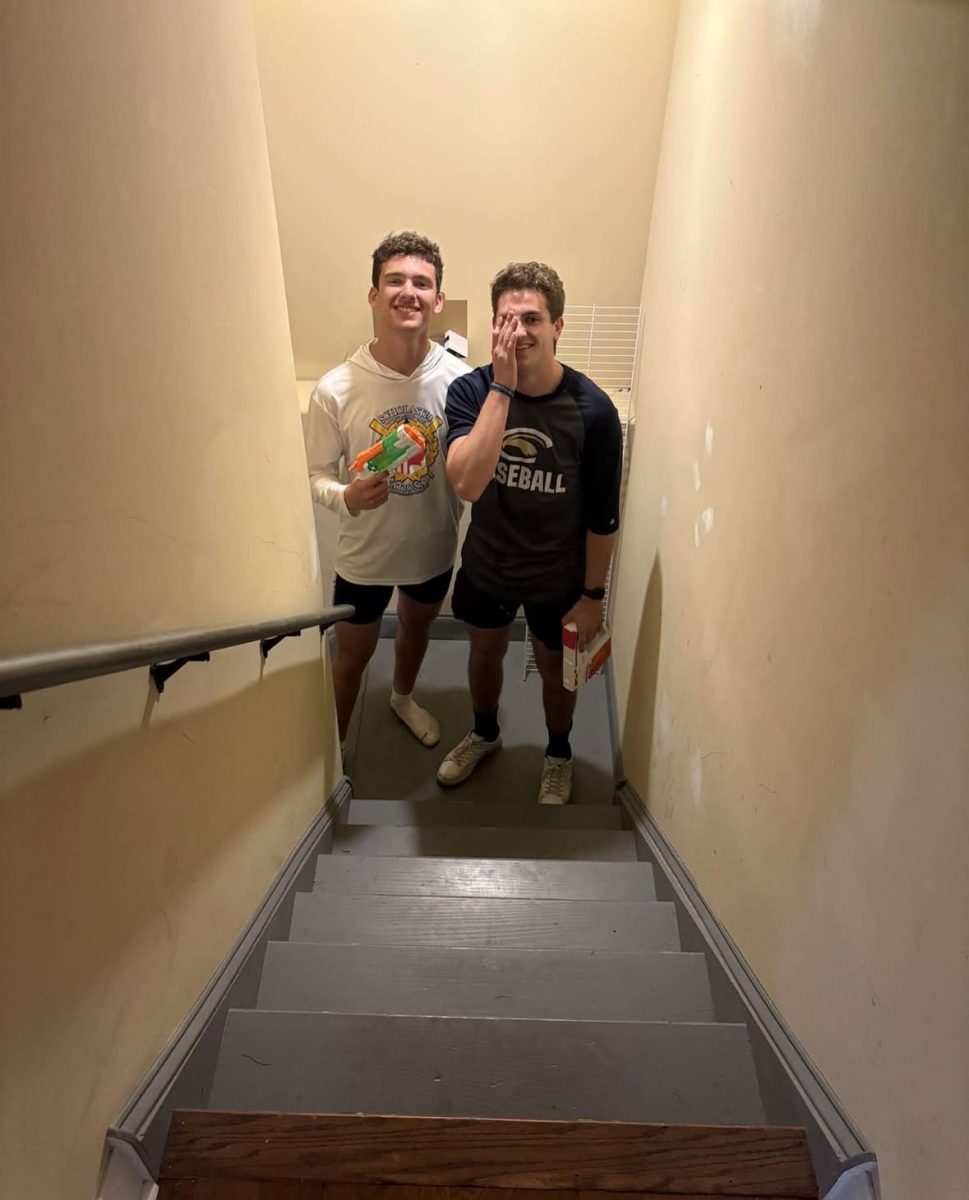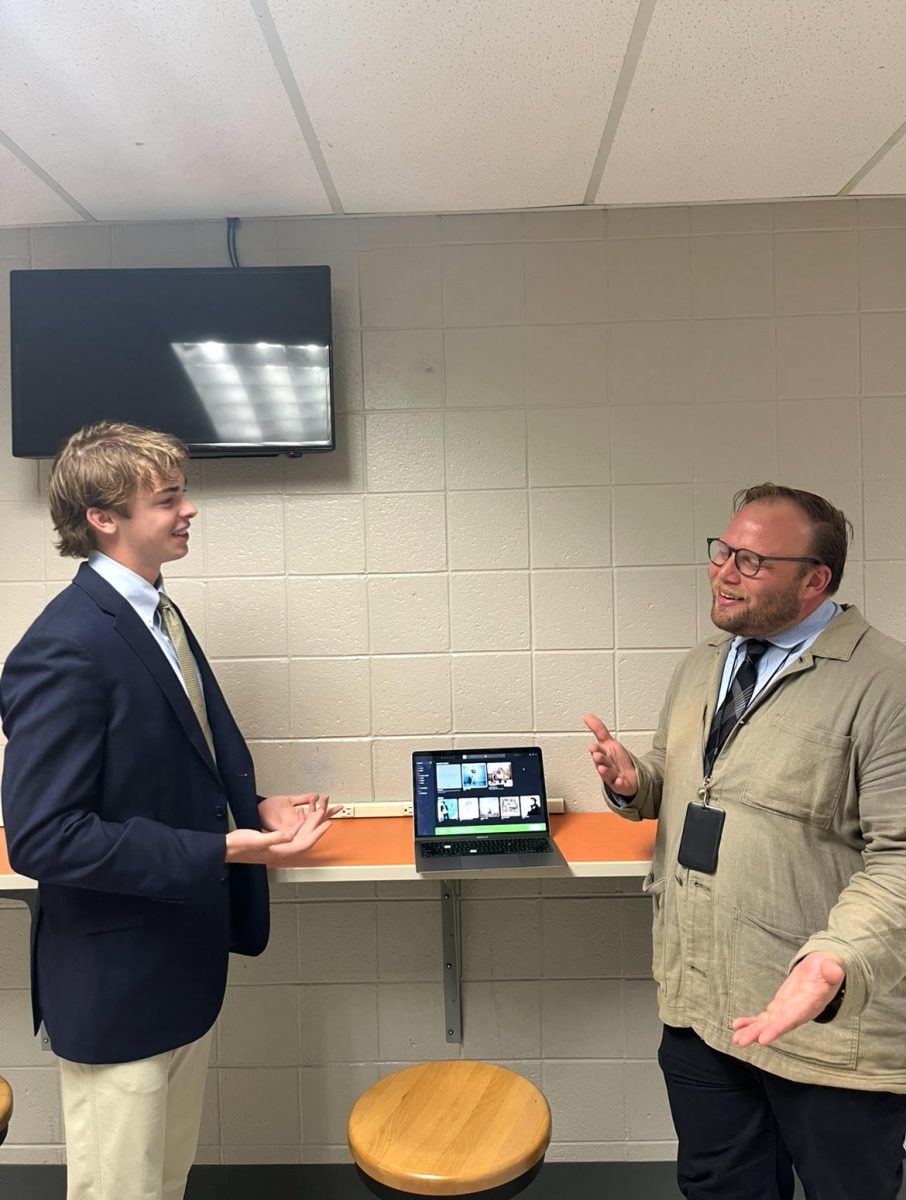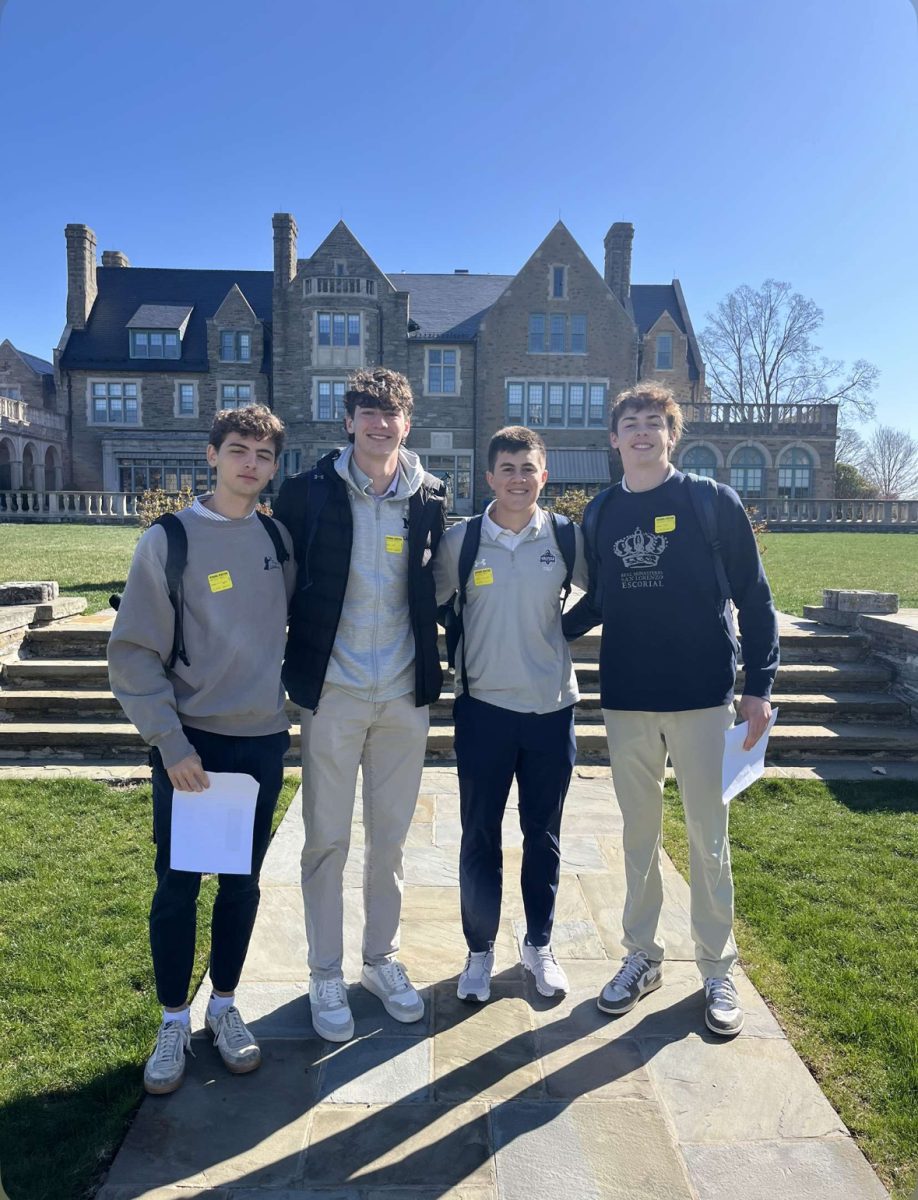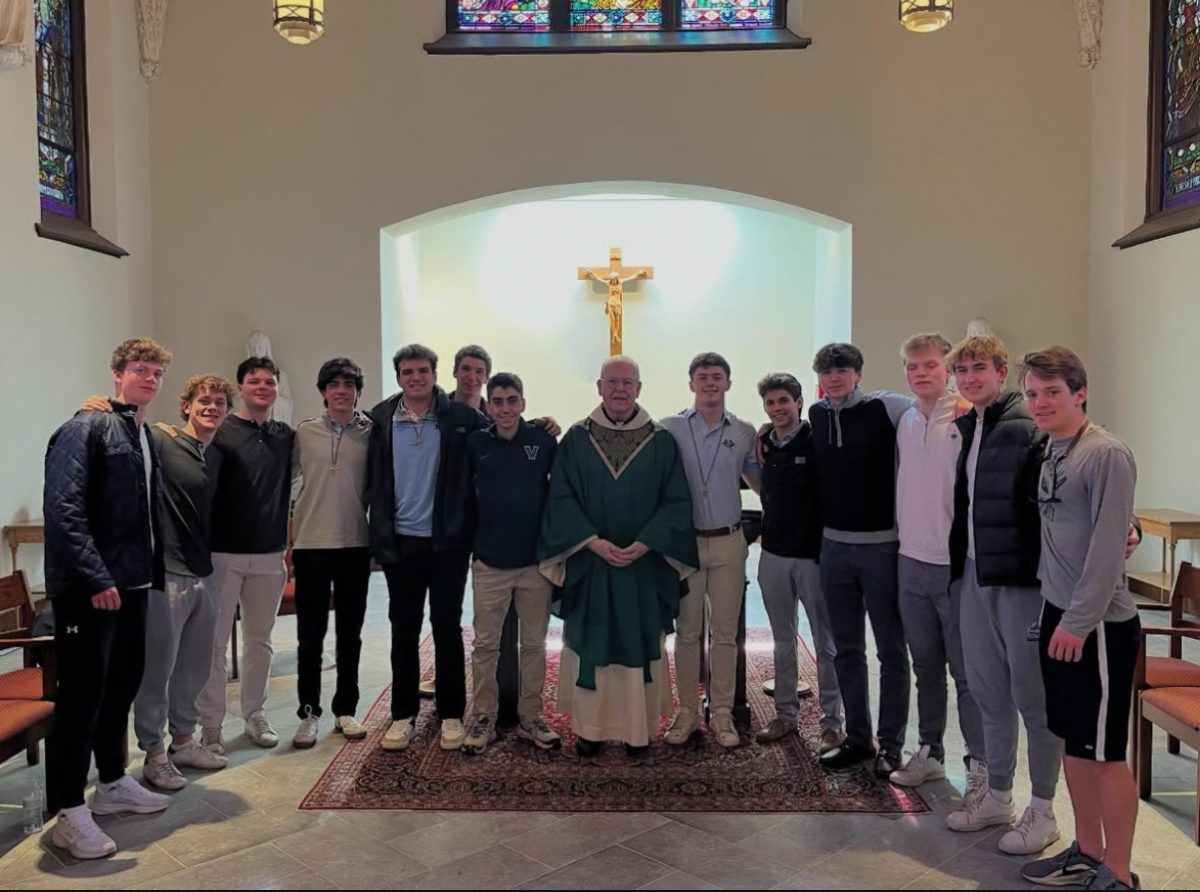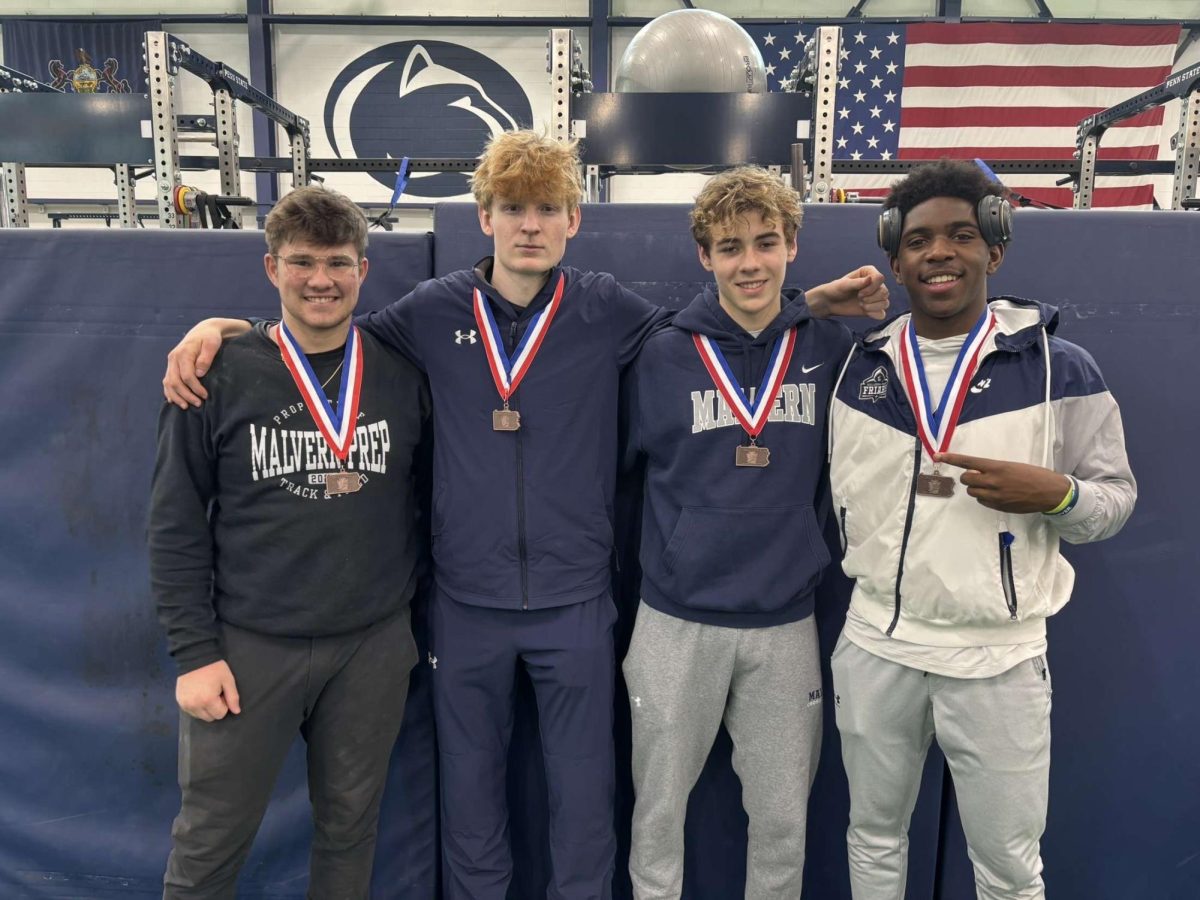Surgeon returned to Malvern on April 3 to speak to students about his experiences.

Dr. EJ Caterson ’92, a reconstructive plastic surgeon, has performed many operations like the facial and limb transplants he shared in his presentation. Yet those types of operations don’t comprise the majority of his work.
“A large part of my practice is cancer reconstruction for people who have sarcoma, which is when large tumors have to be taken out of the body,” he said. “I do my best to put them back together.”
Caterson is the Director of Craniofacial Surgery at Brigham and Women’s Hospital in Boston.
“I’m a plastic and craniofacial surgeon. I try to bring people back to health who have devastating craniofacial injury,” Caterson said.
Caterson said that he usually has twelve hour workdays, and that the type of work he does on a given day varies.
“Usually I get up at about 5:30, get to work at 6:30, usually work until 6, [and I] get home about 6:30,” he said.
Caterson described his work as a 24/7 commitment, more than a job.
“[I] usually [work] five days a week, and then you’re always around Saturday if you’re in town. Basically you’re always on call, meaning if one of your patients has a problem, you take care of it,” he said.
Caterson said that one of his favorite parts of being a surgeon is the problem solving work that it requires.
“You are constantly in a scenario where you’re trying to solve a problem. That problem may be a unique problem, you may have seen variations of it before, but maybe you’ve never actually done that operation,” he said. “Yet you have to use your knowledge base and move forward in a creative way or an innovative way sometimes, based in principle.”
Caterson said that he also takes comfort in knowing that he helps improve the lives of his patients significantly.
“I have one patient who had no nose. I did seven operations on him, and now he has a nose,” he said. “It’s the patient like that, you bring them from a devastating position (he had no nose from cancer) to where he will go by you on the street and look normal. There’s great comfort in that, and it’s a lot of fun to be a partner for someone in that process.”
Caterson also said that being a surgeon involves more than just medical knowledge and ability. “Most people think of the work of a surgeon, which is medical. But part of being a surgeon is leading a team of people,” he said.
“That team of people is looking at you from; one, a medical knowledge perspective; two, for efficiency to move a patient through a operation and through their hospital stay. You sort of wear many hats,” Caterson said. “In addition to that, there’s a whole team of people such as your anesthesia colleagues and your nursing colleagues who are working to the best of their abilities in their roles, so you need to manage all of that together.”
Caterson said that he decided that he wanted to go into medicine while in biology class at Malvern, even though science was not his favorite subject.
“I loved history. I loved Mr. McGuire’s class.I loved the period of time where we moved through World War I,” he said.
Even though Caterson took Spanish while at Malvern, he said that one of the friars on campus met with him several times a week to teach him Russian.
“[Fr. Edson Wood] would stay after school and teach me Russian. I was officially in the Spanish class, but I wanted to learn Russian as well,” Caterson said. “There would be a window after the end of school and before sports started, and in that 30 minutes I would sit with him and he would teach me Russian.”
While not in class, Caterson participated in cross country, indoor track, and baseball while at Malvern. “Baseball was my love. I played shortstop here and I was lucky enough to play shortstop at Villanova. I wasn’t very good at the college level, I was alright at [baseball in] high school, but not in college.”
Caterson says that some of his experiences at Malvern mirror his experiences as a surgeon.
“I think what was exceptional was that I was lucky enough to be in a lot of the honors programs and top sections,” he said. “We referred to ourselves as the nerd herd, and in that sense I really enjoyed the camaraderie of people who were interested in academic pursuits, and interested in learning. I still exist in a field in which intellectual curiosity is valued, continued self-learning is valued, and all of those things had roots in my beginnings at Malvern.”
Caterson said that he hopes Malvern students maximize their time at the school. “That is, to really understand that this place exists to structure you, as an individual, to become a better person, and to maximize your ability to be strong academically, to excel in college,” he said, “But moreover to excel in life, and that is to be a person of character.”
Caterson said that while at Malvern he learned an important lesson in responsibility. “I came to school and got a call from my dad that my grandmother had had a stroke. My dad came and picked me up. I left class and went to see her, and I missed a chemistry test that day,” he said.
“When I came back to class, Mr. Driscoll handed me a manila envelope with the test in it and said, ‘give yourself exactly 50 minutes, take the test, I trust you, put it back in the envelope and seal it,’” Caterson said. “That’s what I think is special about Malvern. I had a gentleman put faith in me in a difficult time, but more importantly treat me like an adult, and that is a very powerful thing. “
“It was probably the first time ever that I was treated as a responsible individual,” he said. “As a result of being given that responsibility, I was not going to look at my chemistry book, I was going to use exactly 50 minutes, and I was going to follow the instructions given to me. There’s a very powerful lesson in that.”
Caterson advised that students should follow their passion in life. “I’ve seen countless times, especially in medicine, people pursue things because they think it’s a good way to go,” he said. “It doesn’t matter, follow your passion.”
For students thinking of medicine as a career, Caterson encouraged patience.
“It’s a long road, and it’s a long term game. Don’t be in a hurry to get there, because with every effort and every experience, you’re going to learn something about yourself,” he said.
“Medicine in particular is about connecting with somebody at a human level, and so any experience you have in your own life makes you better able to be connected to other people.”


